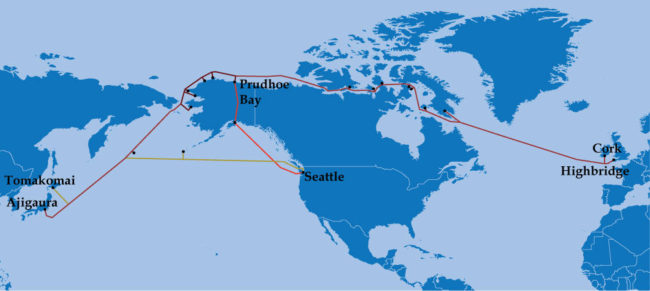
This story is the first of a two-part series from KUAC.
Dial-up Internet access is a distant memory for most of us. But slow connections to the web are still a fact of life in much of the far north, says Madaleine d’Argencourt, who heads up a municipal-government organization in the Canadian territory of Nunavut.
“It’s a serious issue, all across the board here in Nunavut,” d’Argencourt said.
Most of northern Canada lacks access to broadband Internet connections. D’Argencourt says that limits residents’ ability to conduct business online. She cites studies that show broadband in the three northern territories would create jobs and dramatically boost the economy.
“This has huge economic impact,” she said.
The lack of broadband also contributes to a fragmentation of the communities, because residents must go elsewhere for training and education.
“Most people in Nunavut have to leave their own community to get the training they need because online training is impossible to do in the north, without the right broadband. And they’re paying $8,000 to $10,000, to go south.”
An ambitious project proposed by a Toronto-based company could change all that. Arctic Fibre proposes to lay a 10,000-mile-long cable on the ocean floor from the United Kingdom to Japan.
“It’s an immense undertaking — 17,000 kilometers from Asia through to Europe,” d’Argencourt said.
Company spokeswoman Madeleine Redfern says it also would enable much faster and reliable connections than the satellite-based systems now in use.
“We’re the only region in Canada that does not have fiber-optic connections to the outside world,” Redfern said. “And so we’re completely dependent on satellite. It’s very slow, and it’s extremely expensive.”
Arctic Fibre proposed the $700 million backbone as a faster link for financial institutions, and a backup for other cables. Redfern says Arctic Fibre has offered to link up with local Internet service providers in several communities along its route, which would provide broadband to about half of Nunavut’s 30,000 residents.
Next week: Alaska fiber-optic cable project would bring broadband to villages.
